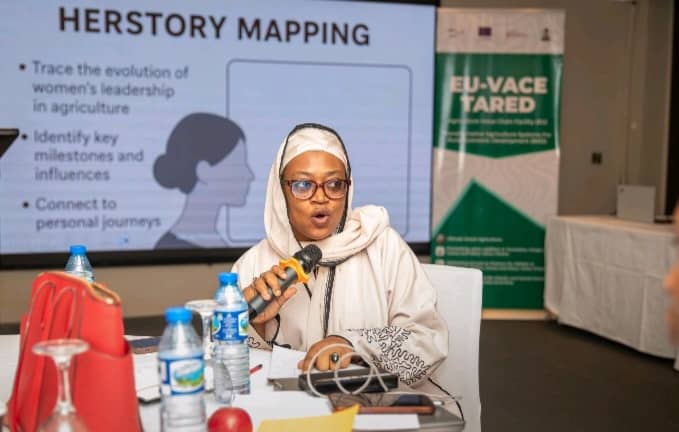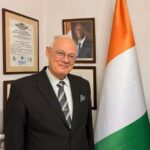AGRIBUSINESS VALUE CHAIN: EU–German-backed forum sets out to break gender barriers in dairy, cocoa, ginger and tomatoes.
By Raymond Enoch
Nigeria’s agricultural sector is powered by women, yet they remain largely excluded from decision-making roles and leadership positions. While women make up more than 70 per cent of the country’s agricultural workforce, they own less than 10 per cent of arable land, highlighting a persistent gender gap in leadership and resource access.

To address this imbalance, the German Government and the European Union, through the co-funded EU-VACE TARED project, convened the Women in Agribusiness Leadership Forum (WALF).
The forum aimed to strengthen women’s leadership capacities in four strategic value chains: dairy, cocoa, ginger, and tomatoes.Organisers designed WALF as more than a conventional seminar. Its core goal was to cultivate a generation of women who can lead, influence, and shape the future of Nigeria’s agribusiness. By combining leadership development with mentorship and networking opportunities, the forum offered practical, actionable strategies for women to take charge within their sectors.

Participants engaged in a two-pronged program. The first focused on building leadership and advocacy skills. Women learned how to lead teams, influence policies, and advocate for equitable access to land, finance, technology, and markets. Training also covered how to assert influence within cooperatives, producer organisations, and policy platforms.
The second component created spaces for speed-networking and mentorship, pairing emerging women leaders with established agripreneurs and sector experts. This approach was designed to foster collaboration and provide guidance on navigating challenges unique to women in agribusiness. By the end of the forum, over 20 of the 50 participants had been matched with mentors, and all participants developed one-month leadership action plans supported by accountability partners to ensure practical implementation.
Beyond individual development, the forum represents the beginning of a gender-focused, multi-stakeholder platform for women in agribusiness. Anchored on the project’s “3Rs” framework — Rights, Representation, and Resources — the platform seeks to:
Promote women’s rights to land, productive resources, and decision-making authority.
Ensure representation of women in leadership and policy spaces.
Provide resources, including access to training, finance, technology, and markets, to support women-led enterprises.
The initiative is part of broader efforts under the EU Agriculture Value Chain Facility (EU-VACE) and the Transformative Agricultural Systems for Rural Economic Development in Nigeria (TARED) project. Both initiatives are commissioned by the German Federal Ministry for Economic Cooperation and Development (BMZ), co-financed by the Delegation of the European Union to Nigeria and ECOWAS, and implemented by Deutsche Gesellschaft für Internationale Zusammenarbeit (GIZ) GmbH.
According to organisers, the forum is expected to not only enhance individual skills but also reshape Nigeria’s agribusiness ecosystem by positioning women as decision-makers, innovators, and key stakeholders.
With leadership plans in place and mentorship networks established, the WALF participants are poised to return to their farms, cooperatives, and enterprises with renewed confidence and practical tools. This initiative marks a significant step toward closing the gender gap in Nigeria’s agriculture sector, ensuring that women are no longer just the backbone of agribusiness but also its leaders and innovators.
As the forum demonstrates, the future of Nigeria’s agriculture will increasingly be defined not just by the hands that till the soil but by the voices and leadership of women who guide its growth and development.










